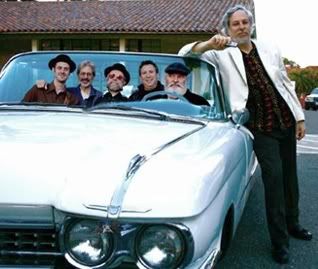|
Dirty-South Blues Harp forum: wail on! >
Do you transpose in your head as you play?
Do you transpose in your head as you play?
Page:
1
phogi
465 posts
Dec 13, 2010
3:14 PM

|
So, when I set out to learn the harp, I thought, "I'm going to simplify and just think as if all my harps are in C." When I play in 2nd position, I think in G. In First, I think in C, in third in d, 12th in F (these are the only positions I'm currently using).
Anyway, that's fine and dandy for jamming, but when you want to read a chart, it's a problem. It takes me too long to transpose it at sight, so, I'm at a crossroads:
option 1) To learn to think in the key of every harp (I'm a piano player, so I already know the keys, but knowing them on each harp takes a few seconds of thinking. Doing this basically means practicing scales on all the harps, and thinking about the actual notes (not transposed) at the same time.
option 2) To take the time to transpose anything I want to read.
option 3) Screw it. Continue thinking as if I'm on a c harp.
I'm curious, those of you who have been at this crossroads before, what was your choice? My plan is option 1, but I'm willing to listen to other ideas.
|
Michael Rubin
29 posts
Dec 13, 2010
3:24 PM

|
I think in terms of scale degrees. In cross harp, 2 draw is a 1. In third, 2 draw is a 4. Then, when I read music, I can know the key the song is written in and think for example, that song is in the key of D. That is an E note, that is a 2. On my G harp in cross harp, 3 draw double bend is my 2.
Michael Rubin
Michaelrubinharmonica.com
|
hvyj
915 posts
Dec 13, 2010
4:56 PM

|
I also think in terms of scale degrees. I know which holes on the harp correspond to which degrees of the scale in each of the 5 positions (first through fifth) that i use regularly when i play. (Twelfth position is still a work in progress for me.)
If i have to work from written music, i get the chart ahead of time and convert the notes to degrees of the scale. I'll write a number above each note on the sheet music corresponding to the scale degree. Then I decide what position would work best in order to play the piece.
Now, when other musicians talk to me in terms of note names (letters) sometimes I may have to stop and think. I can "spell" certain scales off the top of my head. Others, i may need to think about for a minute in order to correlate the letter name of the note with a scale degree.
I'm sure this isn't what they teach at Julliard or Berklee, but it works for me.
I have no formal musical training. But, i keep telling myself that i really should sit down and memorize the "spelling" of all 12 major scales.
Last Edited by on Dec 13, 2010 4:58 PM
|
bonedog569
145 posts
Dec 13, 2010
6:00 PM

|
thinking hurts my brain
----------

|
phogi
466 posts
Dec 13, 2010
6:42 PM

|
I think I'm going to go ahead and learn it. I know keys very well (Don't even have to think about it on piano. I know all my scales and scale degrees without even having to think about it. So, in a way, all I need to do is apply that knowledge to each harp.
But this raises another question. I tend to play different things in different keys. If I'm improving in B on the piano, I tend to play somethings different than if I'm playing in A. Not radically different, but different in a subtle way. If I tranfer my key knowledge to harps in a non-transposing fashion, parhaps these subtlties will also transfer. Food for thought.
|
nacoran
3390 posts
Dec 13, 2010
9:46 PM

|
If you already sight read for piano you might want to consider a movable do system. I don't know if there is any software that converts standard bass and treble to movable do, but that would mean only learning one scale.
----------
Nate
Facebook
Thread Organizer (A list of all sorts of useful threads)
|
Andrew
1247 posts
Dec 14, 2010
8:32 AM

|
When I first started on the harp, I wrote down music and tabs and hit the problem of transposition. Now I don't bother writing down music - I play everything by ear.
Having said that, transposition is a useful skill, and classical musicians have to learn it. Different people do it in different ways. Most do it in their heads, but our flautist said she transposed with her fingers. I don't even know if it really applies to harmonica players!
----------
Andrew,
gentleman of leisure,
noodler extraordinaire.
|
Post a Message
|